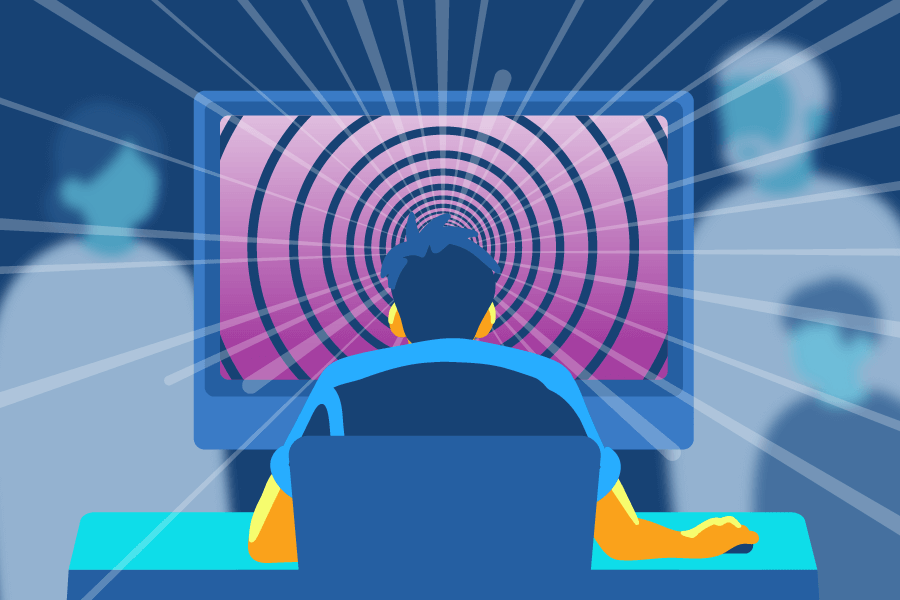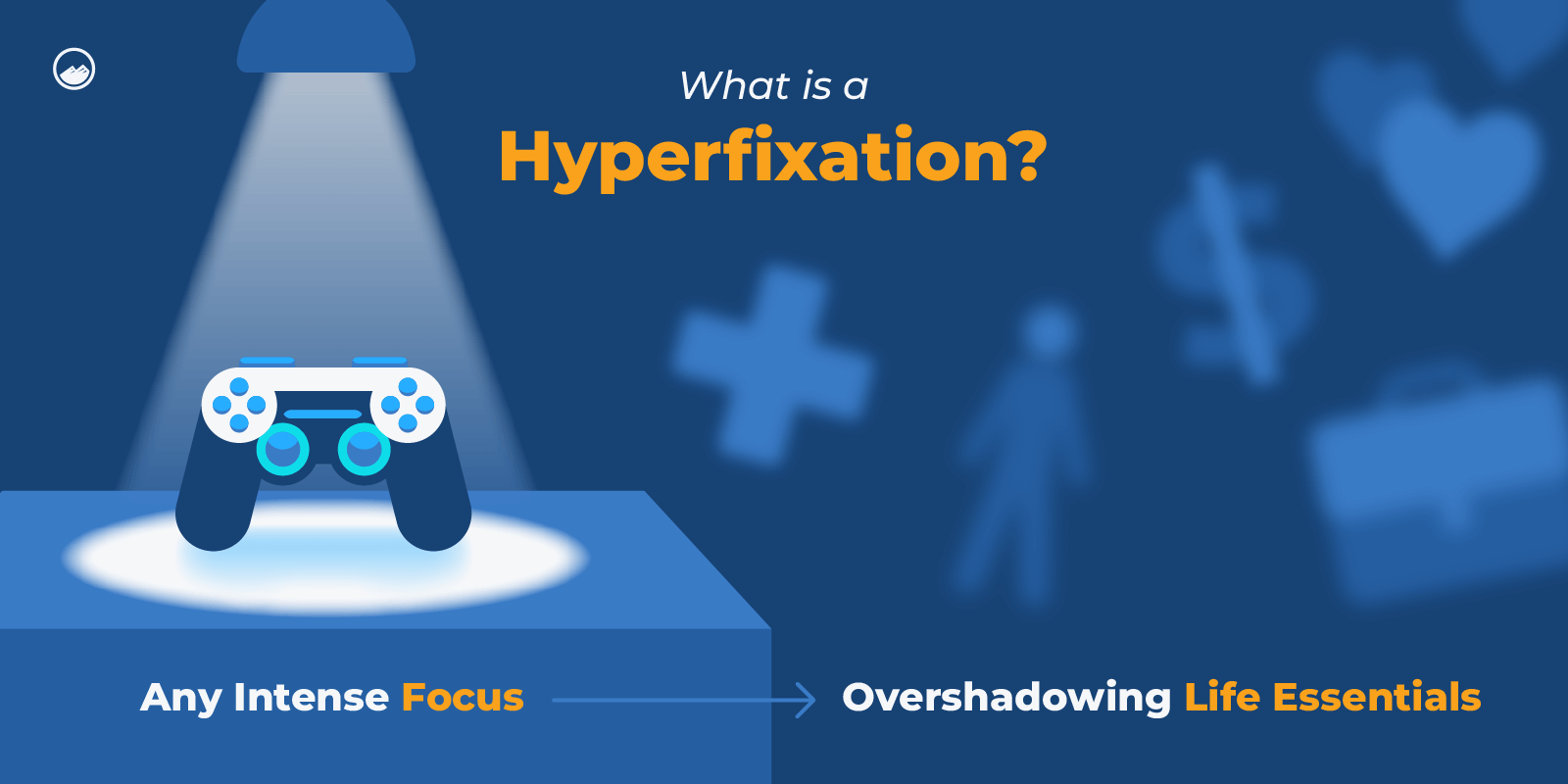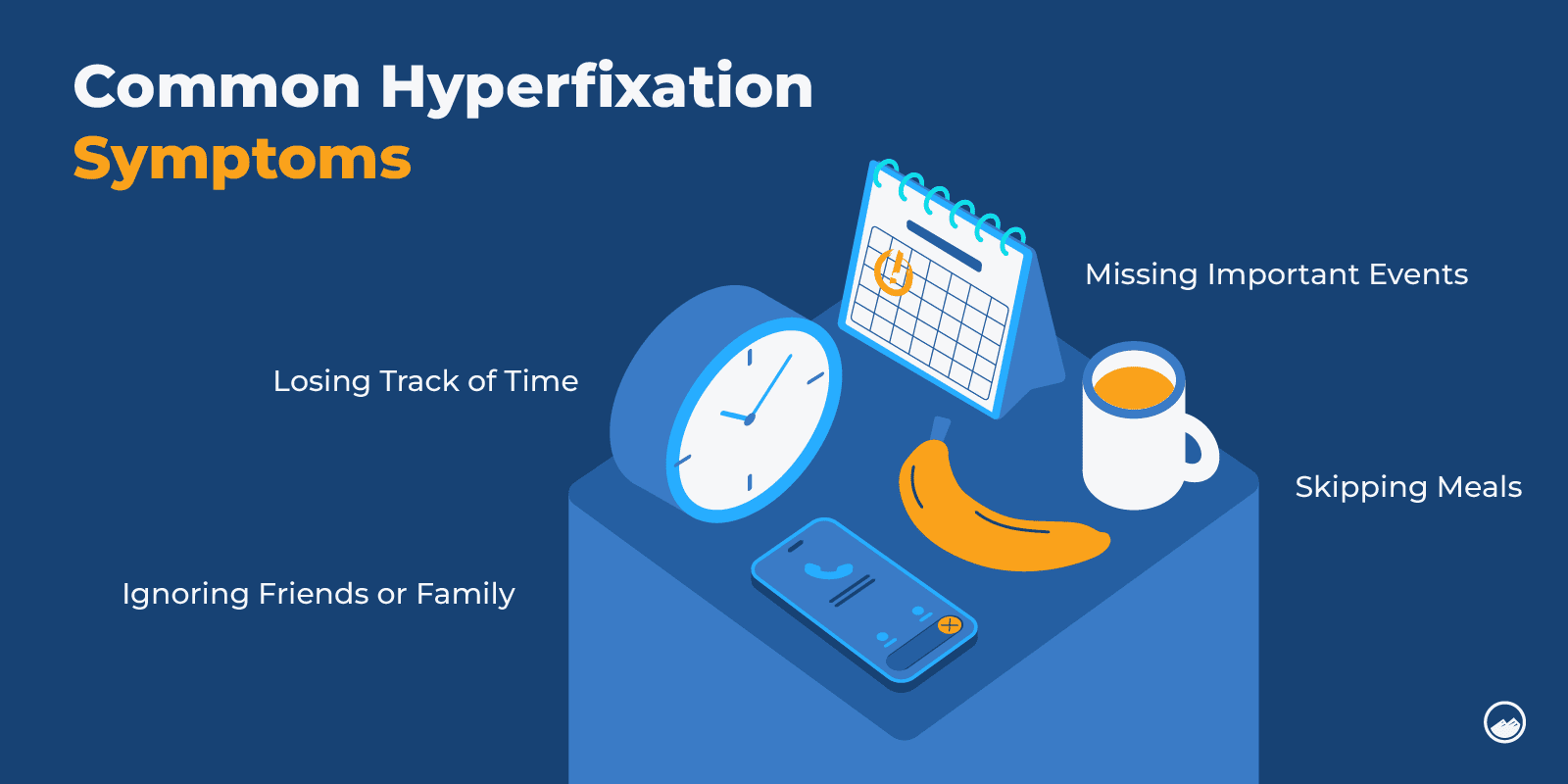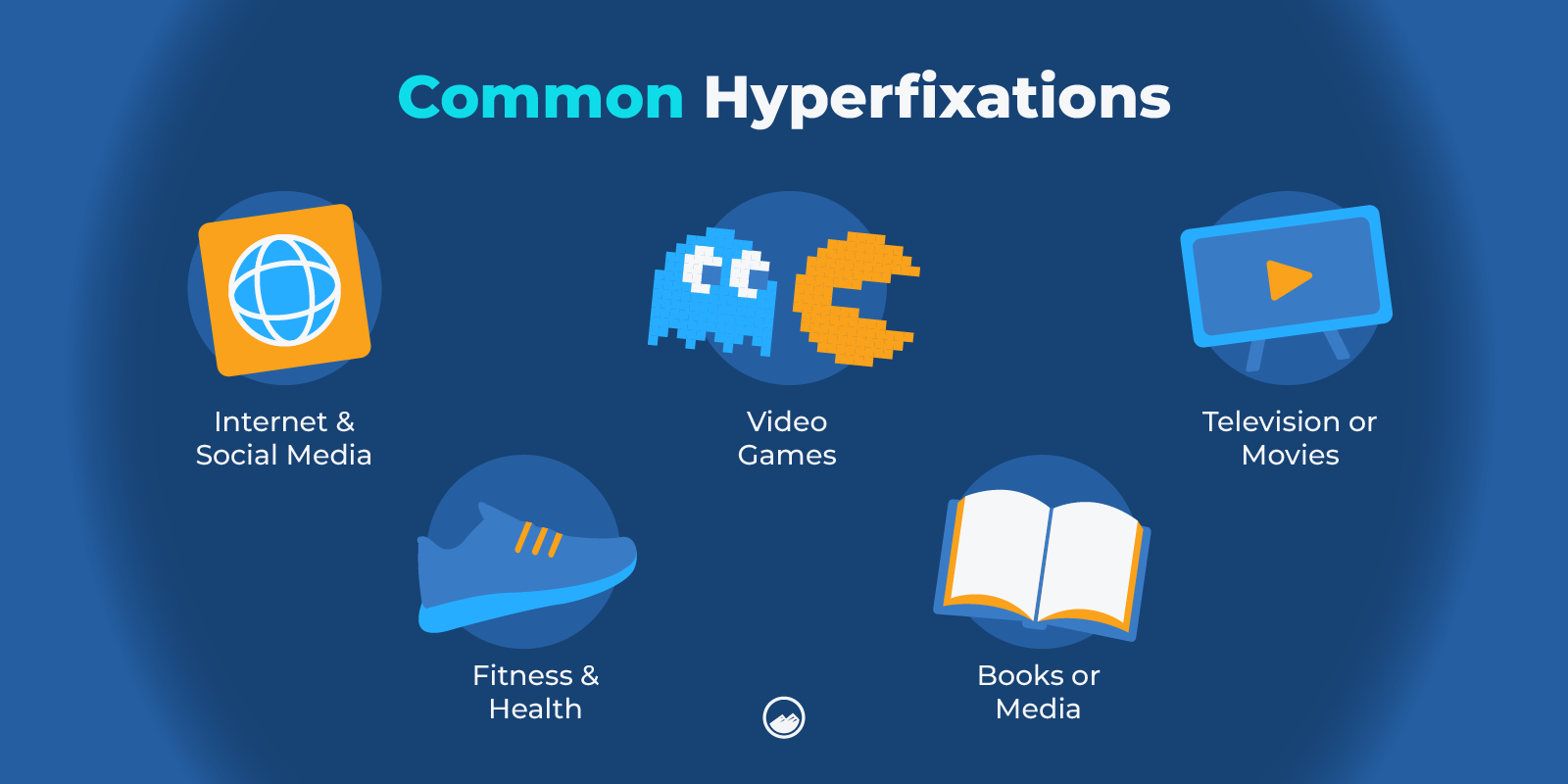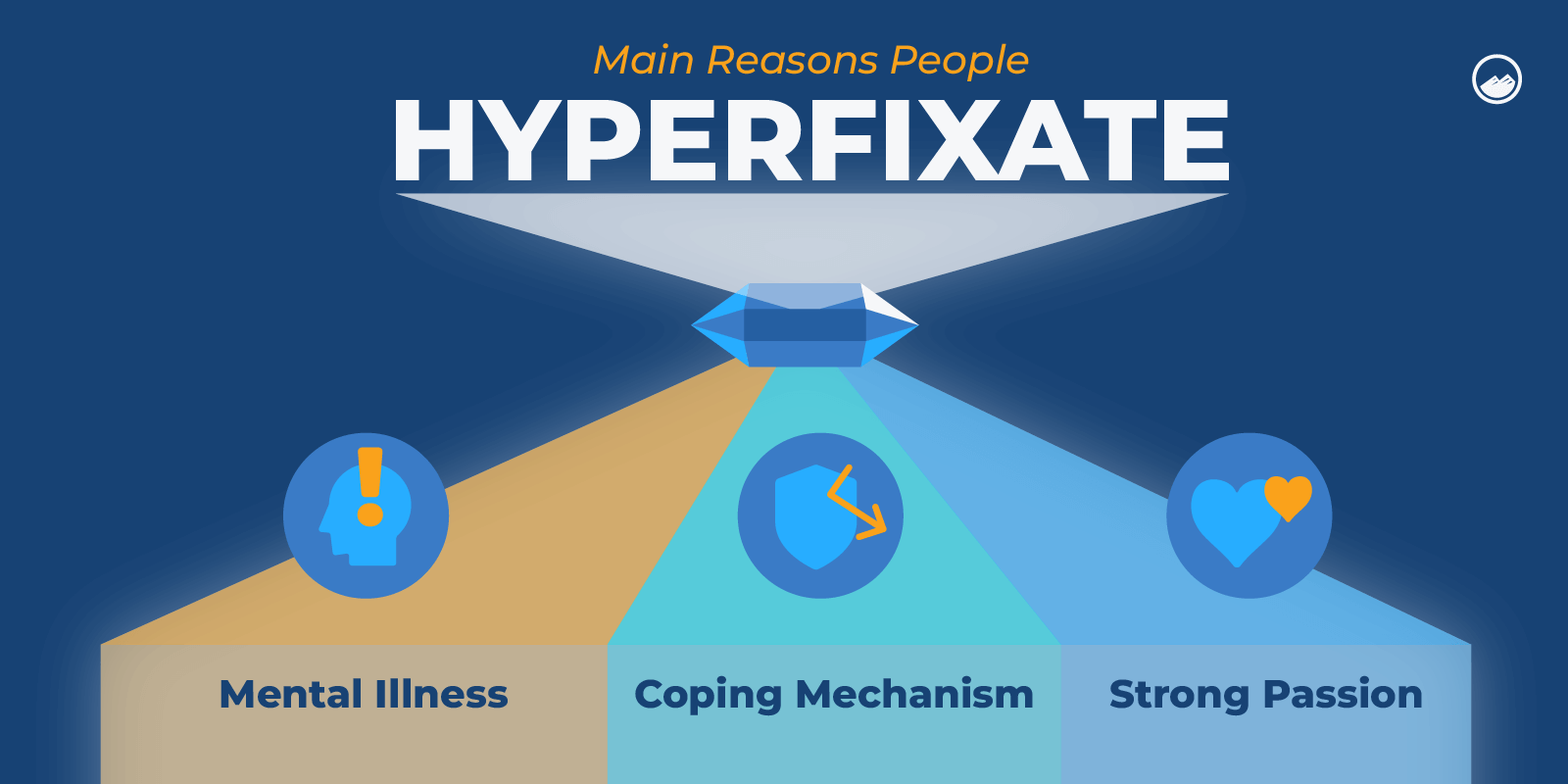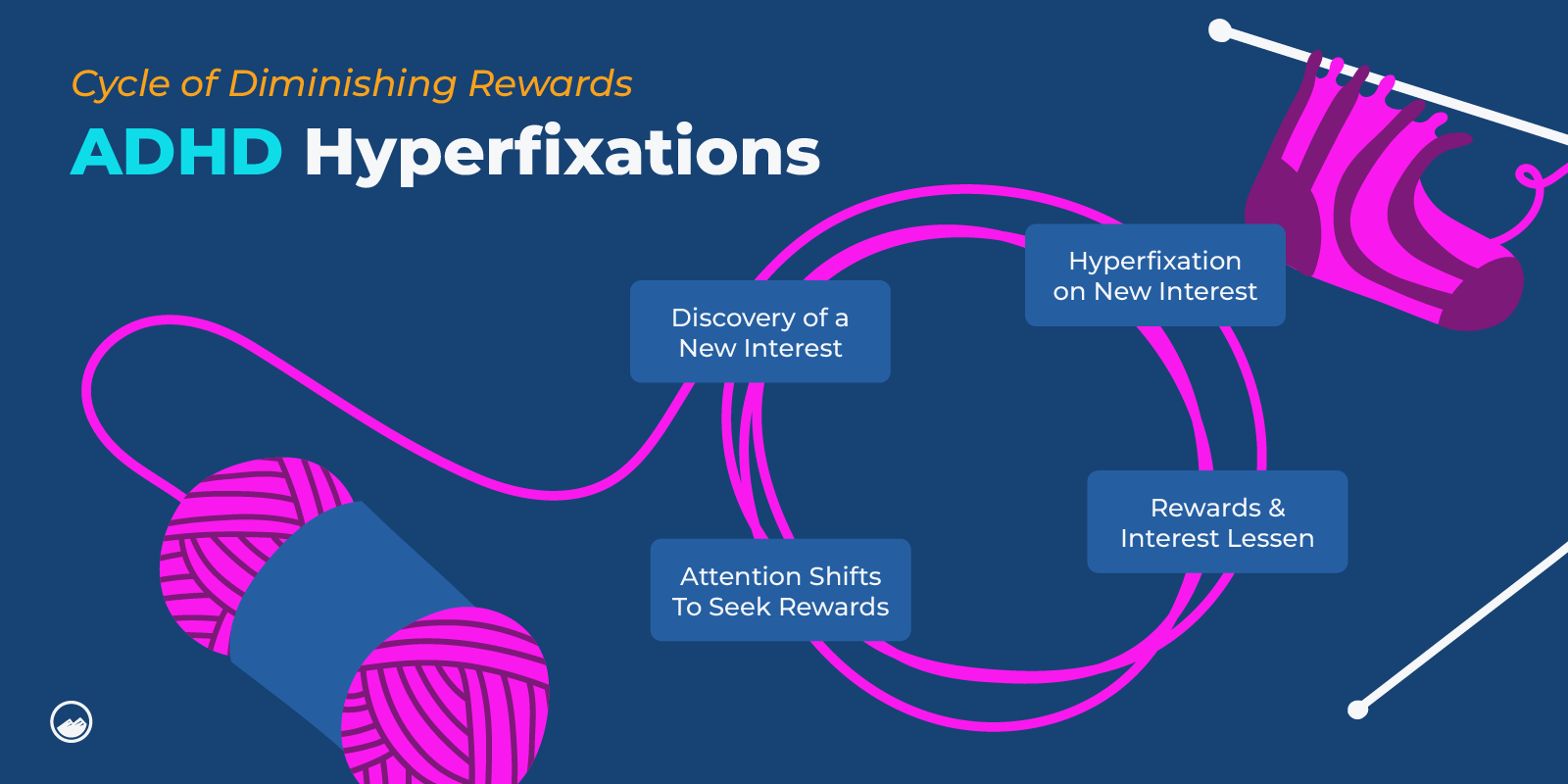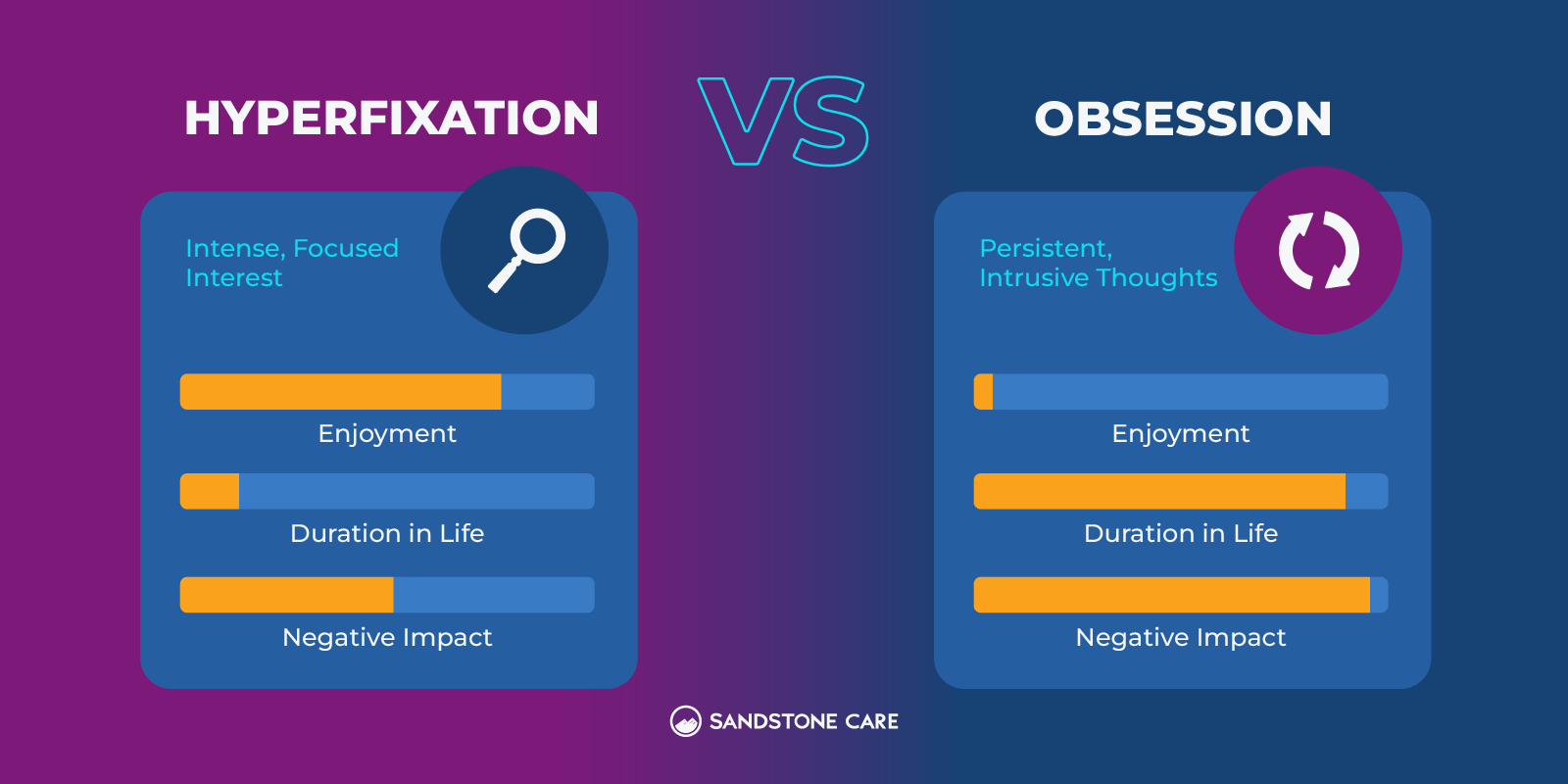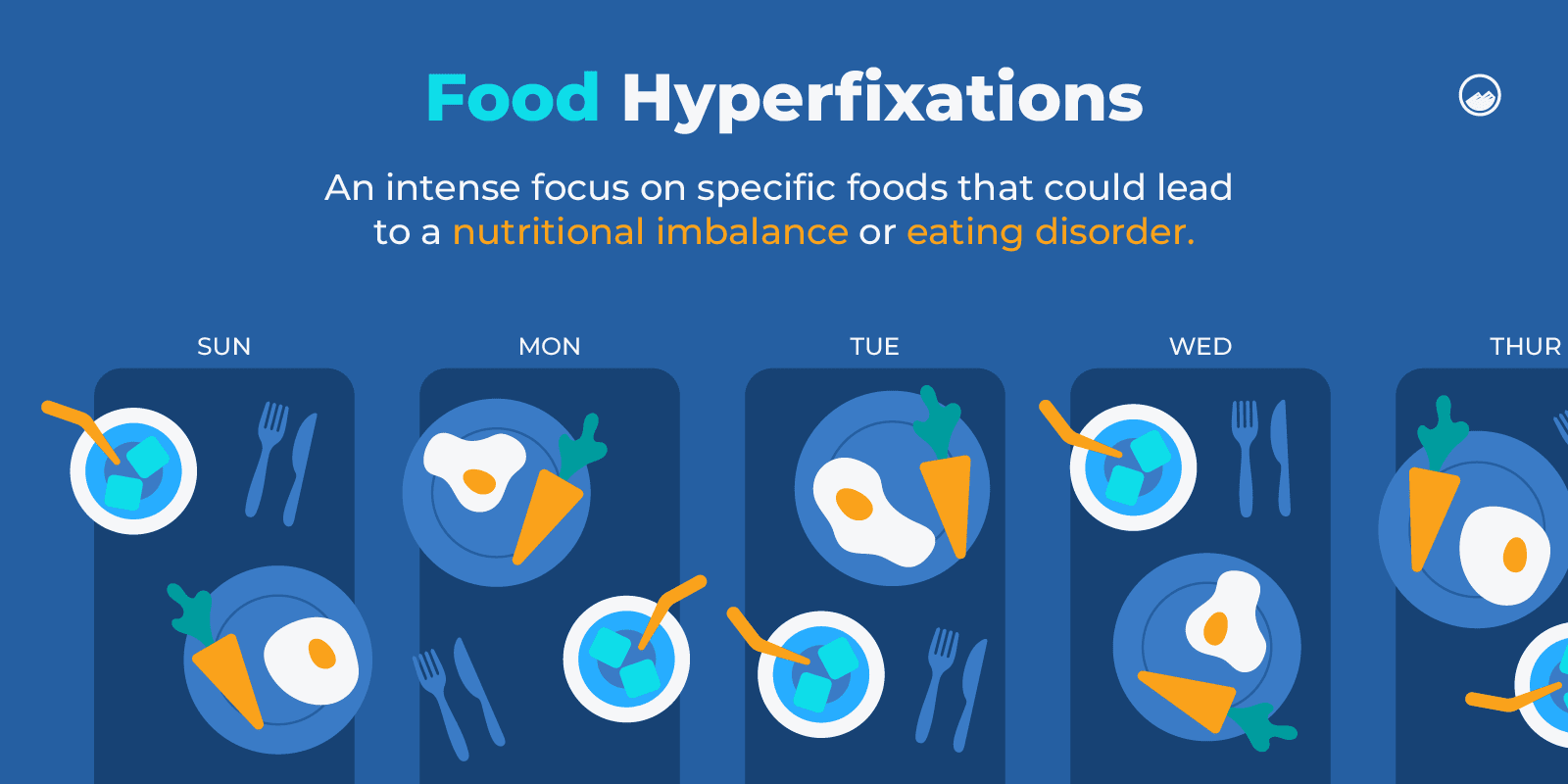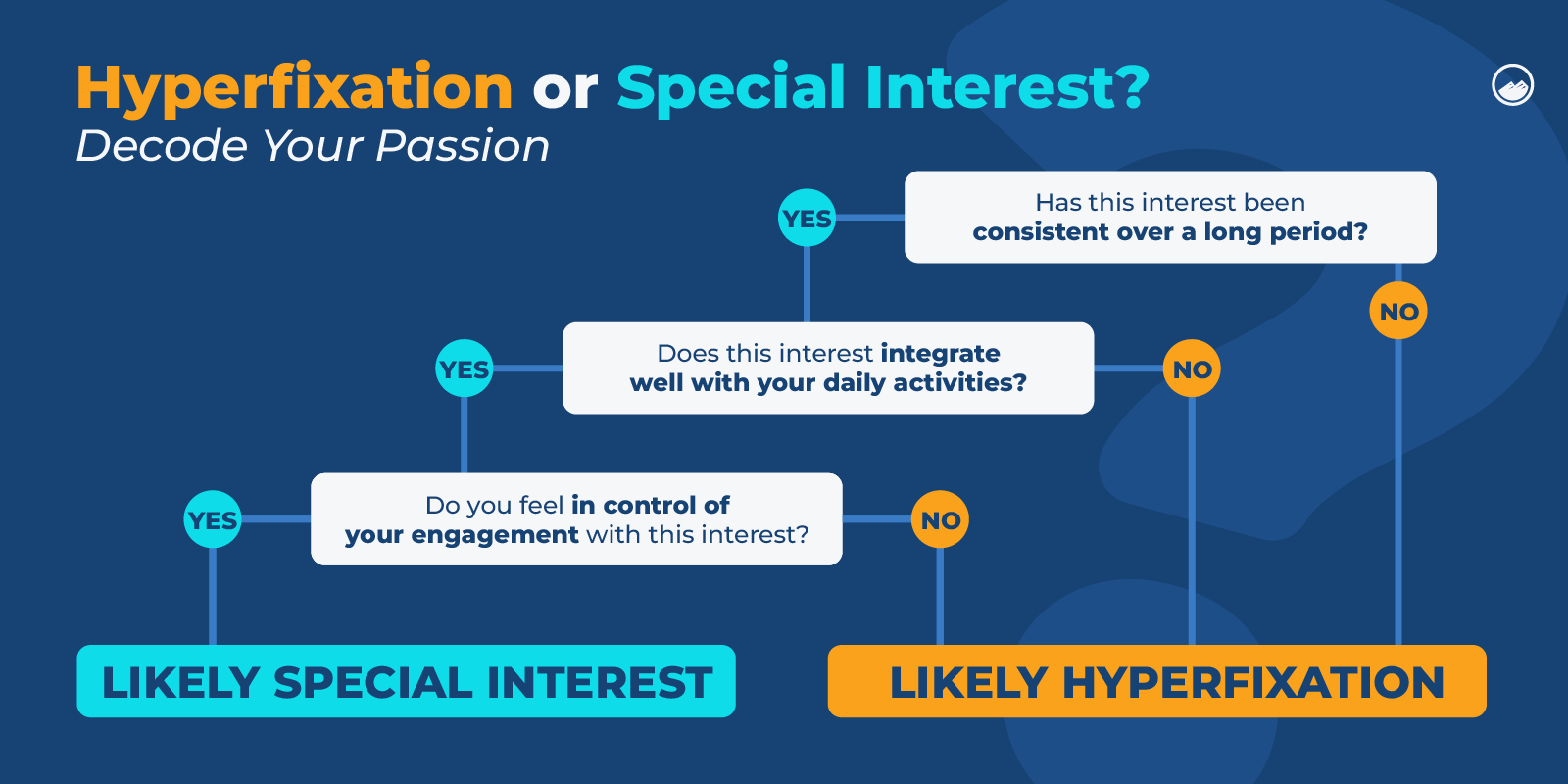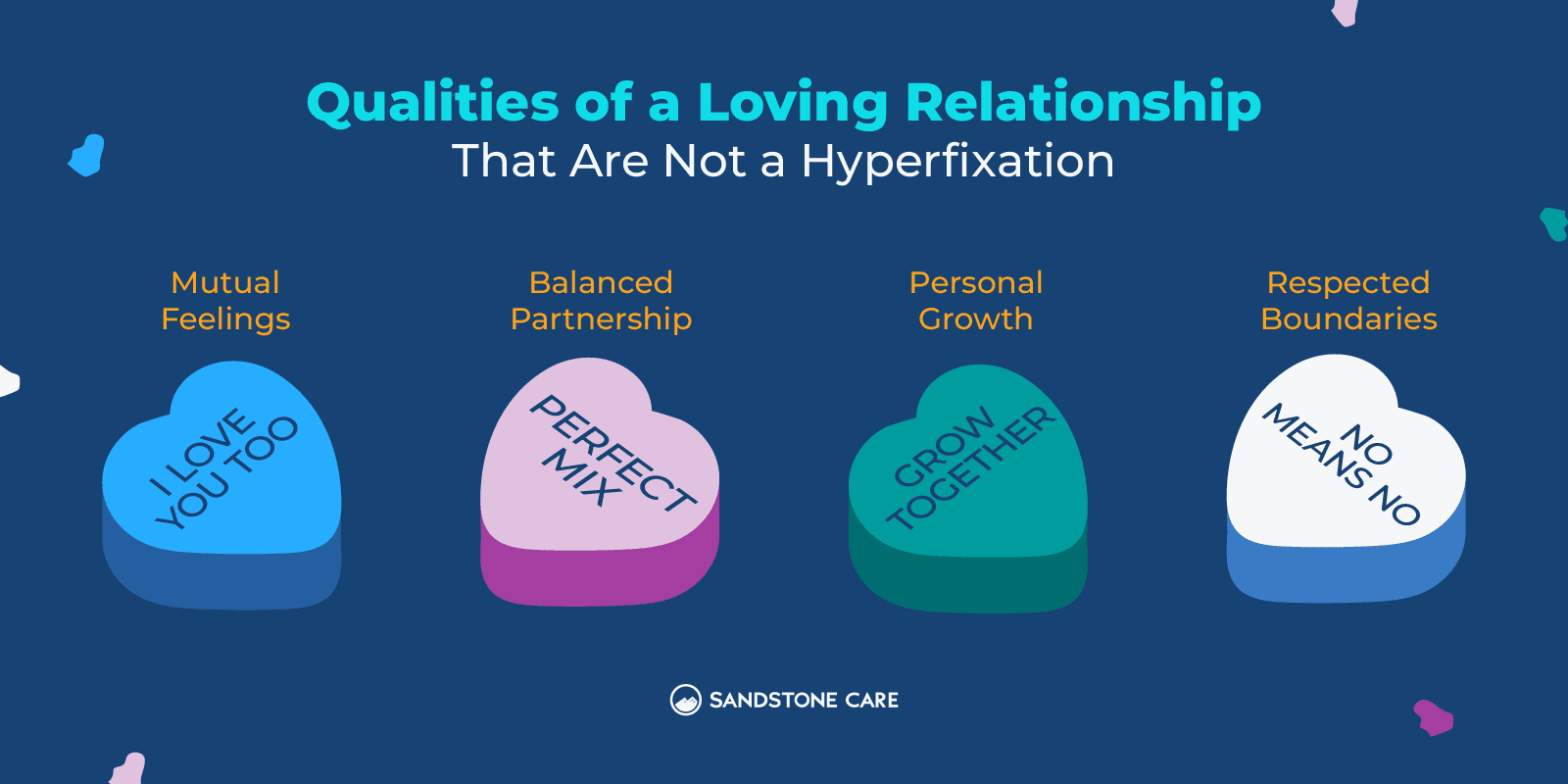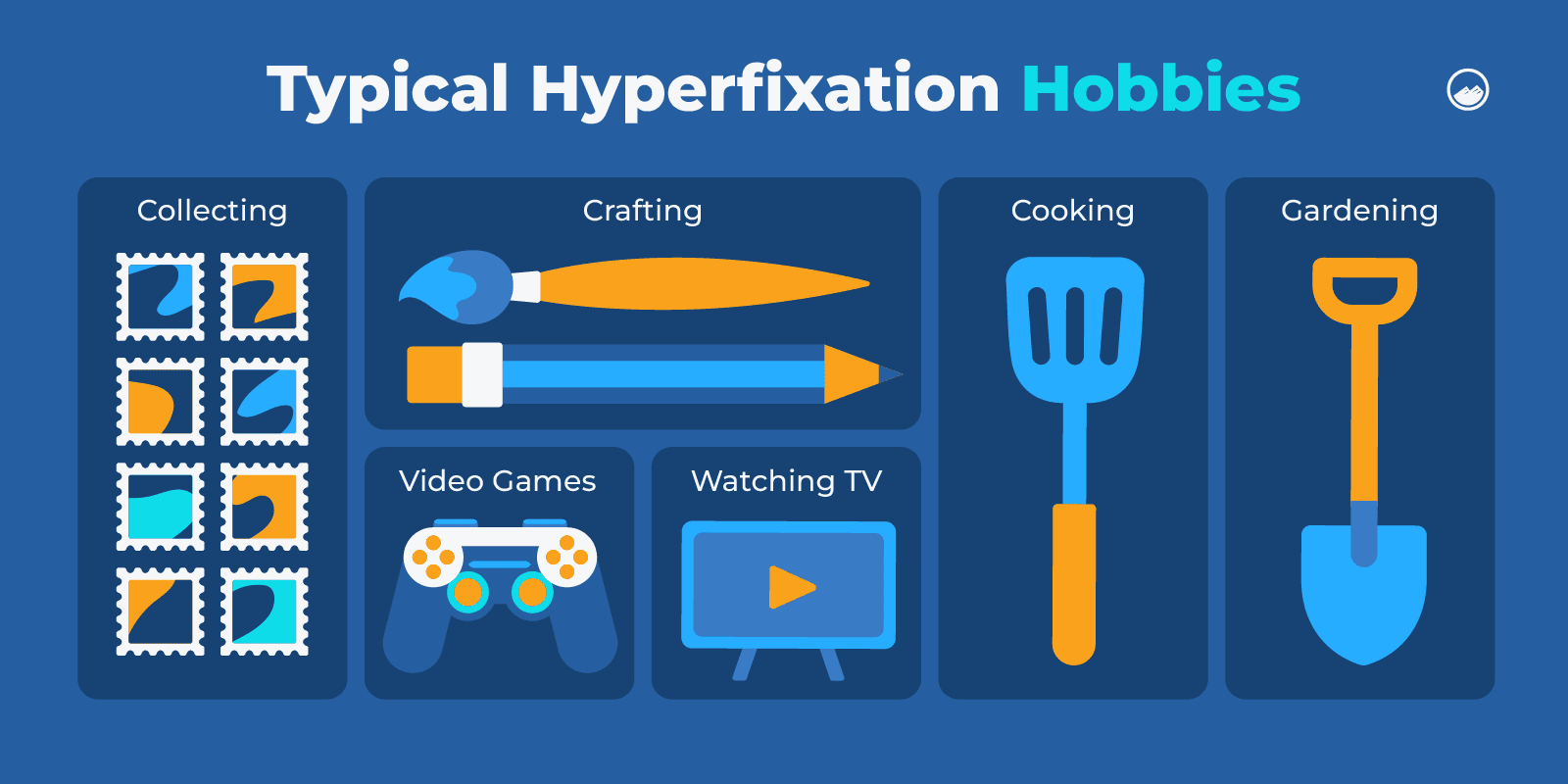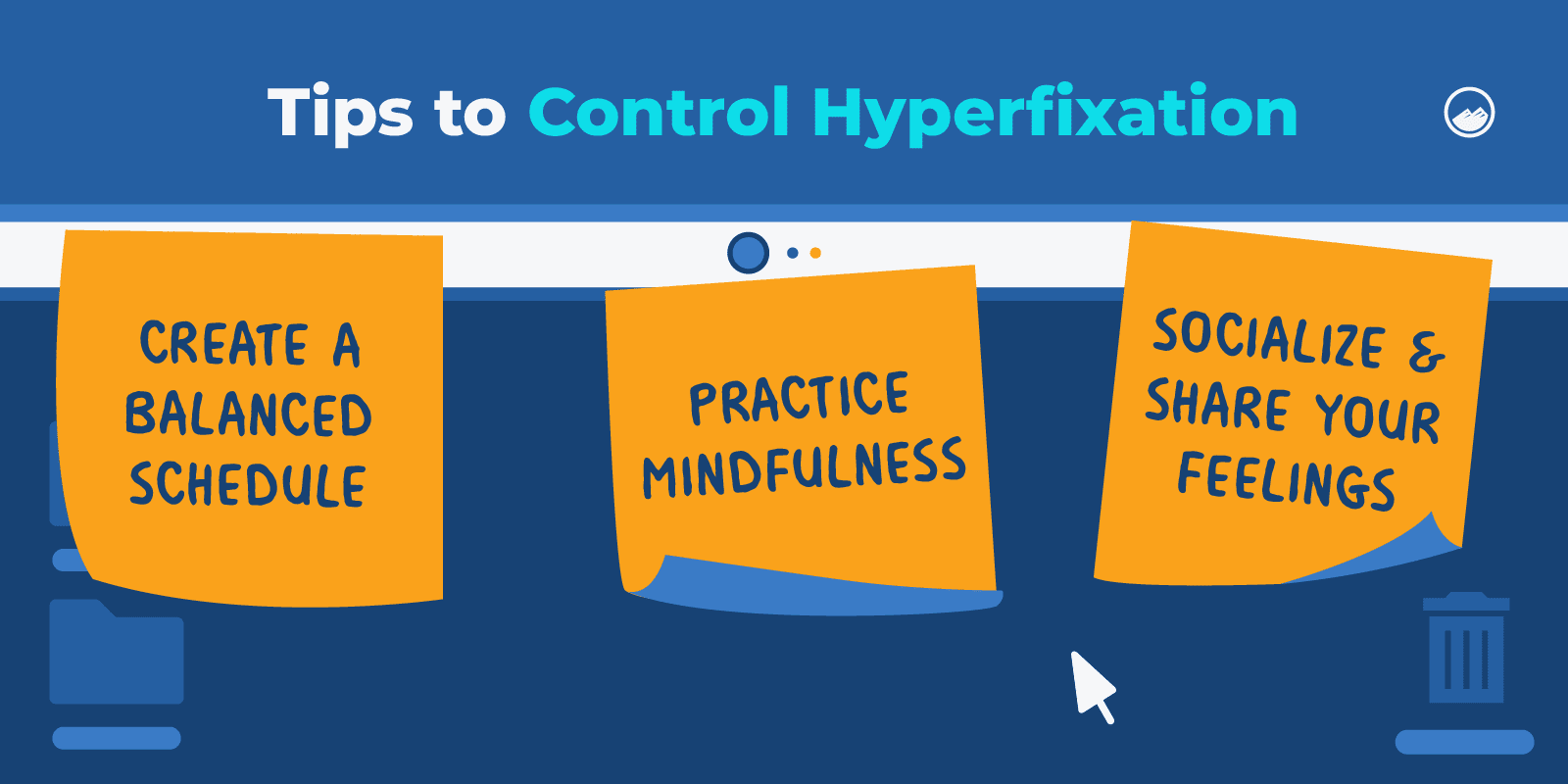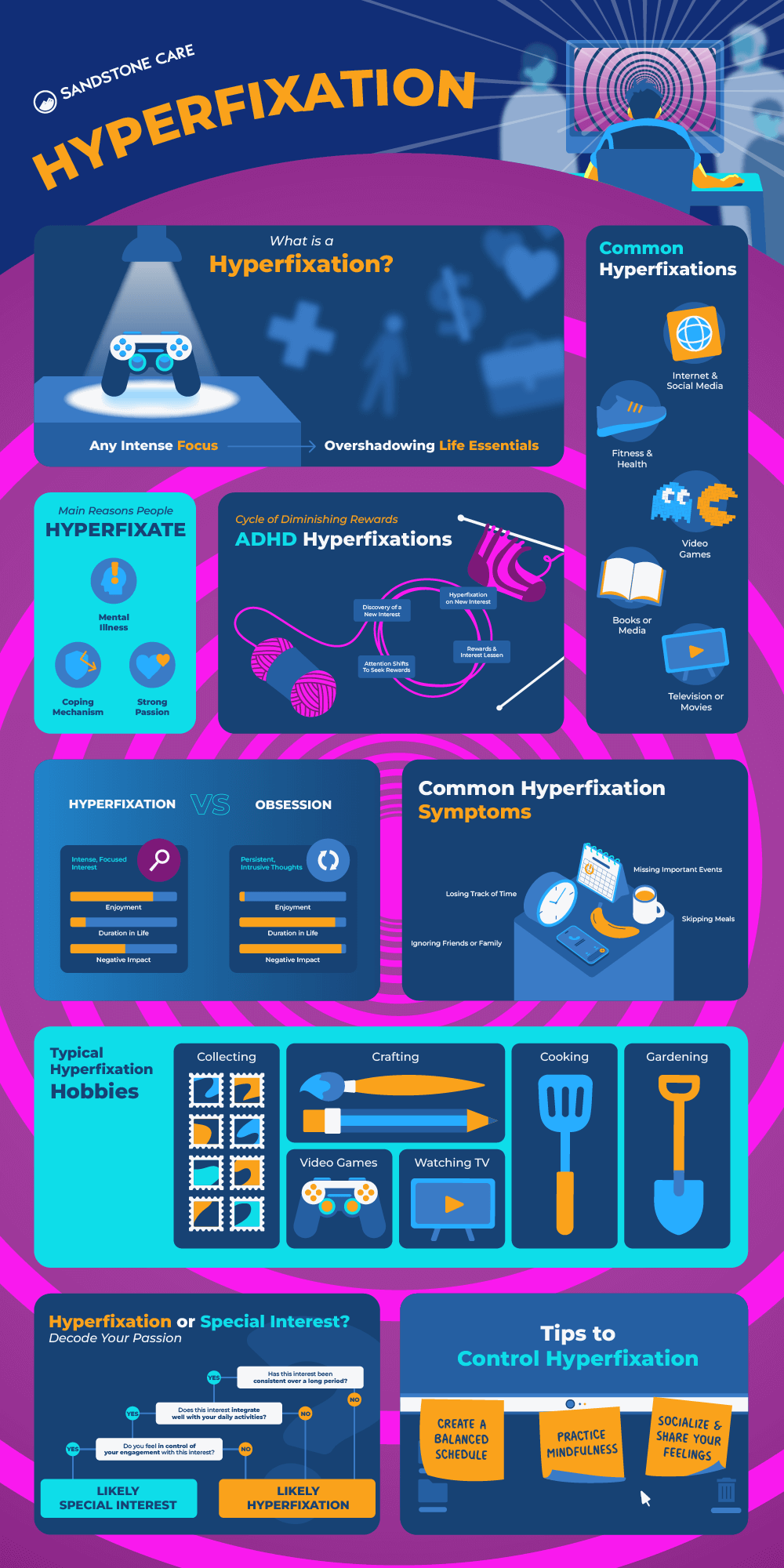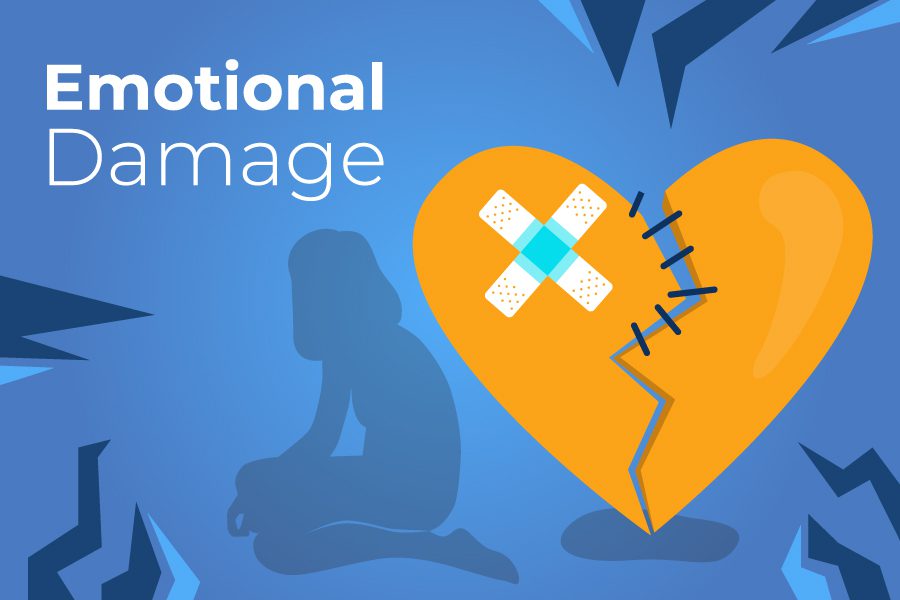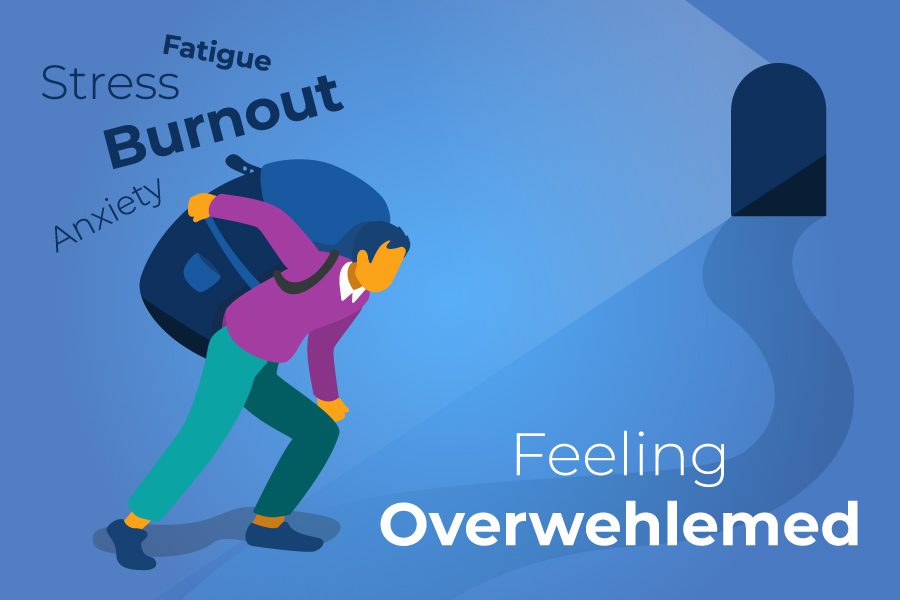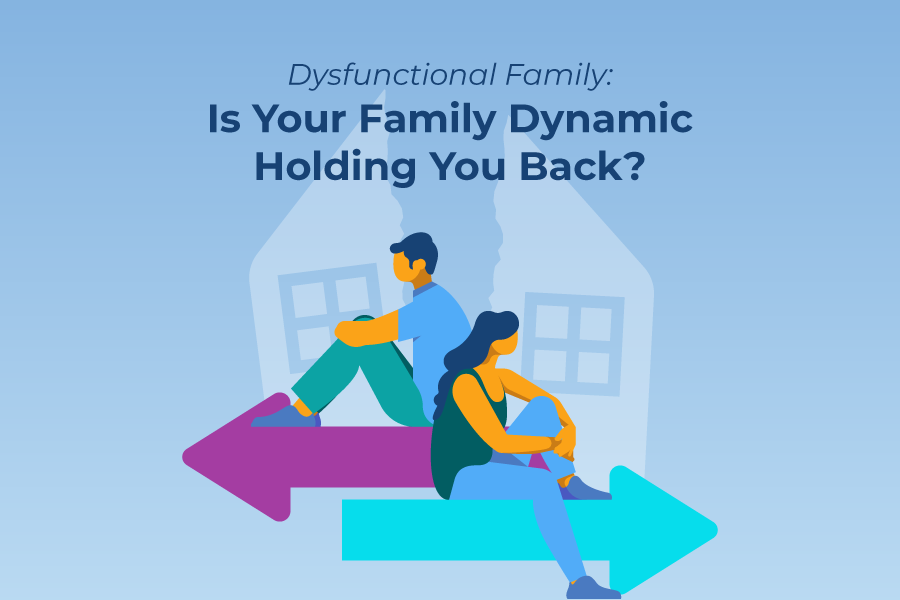Hyperfixate Definition
What Is a Hyperfixation?
A hyperfixation is an intense focus on an object, activity, or person that drives someone to ignore everything else in their daily lives.
People with ADHD or autism often experience hyperfixations, but it can happen to anyone.
Hyperfixation often helps people handle tough emotions by giving them a specific topic or activity to dive into, which can feel more manageable than dealing with what’s troubling them.
For example, someone might pour their energy into learning everything about a favorite band instead of focusing on a difficult personal relationship.
This intense focus can also make it difficult for them to switch attention from their area of hyperfixation to other tasks or responsibilities.
For instance, if someone is hyperfixated on a video game or a creative project, they might find it challenging to stop and start doing homework or household chores.
While it’s not an official medical term, the concept helps explain why some people can get deeply involved in things like projects, a particular TV show, or collecting specific items, to the point where it dominates all of their thoughts and activities.
Are Hyperfixations Normal?
Many people may experience hyperfixations at some point in their life.
A person can become hyperfixated on a hobby, a show, a video game, a person, or something else for days or months at a time.
However, neurodivergent people such as individuals with autism, attention-deficit/hyperactivity disorder (ADHD), or obsessive–compulsive disorder (OCD) are more likely to experience hyperfixation.
How Do Hyperfixations Work?
When a person becomes hyperfixated on something, they become intensely focused on it and tune out everything else. Another term used when someone becomes hyperfixated is saying that they are “in the zone” or in a “flow state.”
They may become unaware of anything happening around them and feel unable to think about anything else but their current focus.
What Causes Hyperfixation?
It is unclear what exactly causes hyperfixation, but there are certain conditions that can make it more likely for an individual to become hyperfixated.
Psychological research shows that often, the root cause of hyperfixating is an underlying mental health condition such as autism, ADHD, OCD, anxiety, or depression.
Certain life transitions, such as processing grief or traumatic events can also trigger moments of hyperfixation.
How Long Do Hyperfixations Last?
Hyperfixations can have various timelines.
A person can become hyperfixated for minutes, hours, days, or months. Longer lasting fixations can be damaging to their physical wellness, career responsibilities, and personal relationships.
Hyperfixation Symptoms
How Do I Know If I Have a Hyperfixation?
Sometimes, it can be hard for someone to tell if they are just extremely interested in something or have developed a hyperfixation.
Symptoms of hyperfixation include:
- Forgetting everyday things like eating or drinking because you are highly focused on one thing
- Frequently losing track of time
- Ignoring friends or family
- Coping by scrolling on social media for huge amounts of time
- Forgetting important events or activities
- The current focus is interfering with daily life or relationships
Someone who is hyperfixated might not hear people talking to them or be aware of anything that is going on around them.
What Does Hyperfixation Feel Like?
When someone becomes hyperfixated, they feel consumed by one person, place, thing, or action. They may feel numb to the outside world while feeling extremely energized around their fixation.
It can be tough to switch the focus off when a person is hyperfixated, especially when it is acting as a coping skill to escape from feelings like anxiety or insecurity.
Hyperfixation Causes
Why Do I Hyperfixate?
A person may hyperfixate for various reasons.
One explanation could be that the brain is looking for reward-seeking behaviors. With ADHD, for example, it can be difficult to stay engaged on a single task, so the brain’s reward system becomes dysregulated and seeks behaviors that make it feel rewarded.
Additionally, sometimes, individuals who are neurodivergent find more comfort in complex things, so their brains seek something that is engaging and challenging for their minds rather than repetitive, everyday things.
Certain mental health conditions, including ADHD, autism, and OCD, can also be associated with symptoms of emotional dysregulation.
A person may become hyperfixated on something as a way to cope with their feelings or emotions.
What Triggers Hyperfixation?
Everyone can have different triggers for hyperfixation, but some common triggers include stress, new opportunities, or needing a sense of control over your time and identity.
Some people might become hyperfixated on something when they are experiencing overwhelming emotions or feelings, and they hyperfixate as a way to cope.
What Is Hyperfixation a Symptom Of?
Hyperfixation can be a symptom of various mental health conditions, such as autism, ADHD, OCD, anxiety, or depression.
Hyperfixations may also be a symptom of unique life experiences such as grief or other major transitions. Hyperfixations can also result in high performance in work or school that seems like a benefit at first, but eventually leads to burnout, such as in high-functioning anxiety.
Is Fixation a Coping Mechanism?
Hyperfixation can be a coping mechanism when a person is experiencing difficult feelings.
They might hyperfixate on one thing to tune out other things that are going on in their life or as a way to distract themselves. They might become overwhelmed, so the brain turns to one single thing to find relief.
Fixation also allows people to have a level of extreme control over their time and activities, which can be soothing when their circumstances feel out of their hands.
ADHD Hyperfixation
Is Hyperfixation a Symptom of ADHD?
Hyperfixation is commonly associated with ADHD.
When a person with ADHD becomes hyperfixated, they become intensely focused and immersed in a single thing or activity.
This can take up all of their time and energy and cause them to neglect important responsibilities and everyday tasks, like drinking water or attending classes on time.
A person with ADHD is more likely to experience hyperfixations than a person without ADHD.
Why Didn’t My ADHD Hyperfixate on Something Healthy?
Hyperfixations most commonly happen with unhealthy high-reward activities since the brain has an easier time dedicating huge amounts of energy when there is a promise of positive reinforcement.
Unfortunately, many high-reward activities, such as scrolling on social media or gambling, can be unhealthy.
It is not impossible for a hyperfixation to turn into something healthy. For example, if a person becomes hyperfixated on a certain hobby, such as crafting, they might develop an interest in it.
When they are able to manage their time and engage in the activity without hyperfixating, they might find joy in doing these hobbies without it damaging the other parts of their life.
How Long Do ADHD Hyperfixations Last?
Since ADHD already makes time management incredibly difficult, those with ADHD are vulnerable to experiencing hyperfixations that last as long as multiple months.
Once a person starts to snap out of their hyperfixation, they might feel disoriented, and it can take some time for them to fall back into their regular routine.
Autism Hyperfixation
Is Hyperfixation a Symptom of Autism?
Hyperfixation can occur as a symptom of autism.
Not everyone with autism experiences hyperfixation, but it is most commonly a symptom in neurodivergent people.
Do Autistic People Hyperfixate?
Autistic people can experience hyperfixation, but it does not occur in every individual who is autistic.
Autism spectrum disorder (ASD) ranges, and it is unique to each individual. This variability makes it incredibly important that those experiencing symptoms of ASD, such as hyperfixation, reach out to mental health professionals to help get the proper diagnosis.
Autism Hyperfixation Examples
Common examples of autism hyperfixations can include doing crafts, watching television, or playing video games.
Younger children with autism might become hyperfixated with certain TV characters, specific toys, or unusual objects like shoes or rocks.
OCD Hyperfixation
Can OCD Cause Hyperfixation?
Hyperfixation can also occur as a symptom of obsessive–compulsive disorder (OCD).
With OCD, hyperfixation can make a person intensely focused on their obsessions. These obsessions can make a person engage in compulsions, which are repeated behaviors that a person does as a way to cope or manage their obsessions.
What’s the Difference Between Fixation and Obsession?
However, one of the major differences between hyperfixations and obsessions is that obsessions typically cause distress and discomfort, whereas hyperfixations typically produce pleasure and satisfaction. Yet, they both can negatively impact a person’s life and well-being.
In OCD, obsessions are unwanted thoughts, images, or impulses that occur repeatedly that a person cannot control. These obsessions may cause a person to feel like they need to get things to be “just right,” and they might become hyperfixated on it.
Obsessions and hyperfixations can be similar, as they both take up a lot of a person’s time and energy.
Hyperfixation and Anxiety
Is Hyperfixation a Symptom of Anxiety?
Hyperfixation can also be associated with anxiety disorders.
A person with anxiety may become hyperfixated on worries or about possible scenarios that could happen in the future, which can take a toll on their mental health.
A person with anxiety may also become hyperfixated on hobbies or passions because they are trying to escape thier anxious feelings.
How Do I Stop Anxious Hyperfixation?
One of the biggest ways to stop anxious hyperfixation is by seeking support, whether it is from a loved one, friend, or professional.
This may mean calling a friend to hang out and distract you, joining a support group, or starting a new hobby.
You can also start by trying to give yourself breaks from what you are hyperfixated on. Going outside, on a walk, or just trying to keep yourself busy on something else can help you break out of an anxious, hyperfixated state.
Hyperfixation Foods
Why Do I Hyperfixate on Food?
Individuals with ADHD or OCD may become hyperfixated on certain foods which can impact a person’s eating habits.
Hyperfixating on food is not always a negative thing. For some, hyperfixating on food can lead a person to try new recipes or become creative with their cooking. On the other hand, for some, it can make it difficult to keep up with healthy eating habits.
Some individuals who hyperfixate on food may want to eat the same food every day of their lives.
Do People With ADHD Fixate on Food or Hyperfocus on It?
A person with ADHD can either hyperfixate on food or hyperfocus on it.
The difference between hyperfixation and hyperfocus is that hyperfixation involves intense interest or preoccupation with something. Whereas, hyperfocus is more centered around goals and is driven by tasks.
When a person with ADHD hyperfixates on food, it can impact their eating habits. They may start to skip meals, engage in binge eating, become a picky eater, or have difficulty meal planning or prepping.
If you or a loved one with ADHD is hyperfixating on food, it can be helpful to reach out to your healthcare provider or a mental health professional to help you learn strategies to overcome your hyperfixations.
Hyperfixation vs. Special Interest
What Is the Difference Between Special Interest and Hyperfixation?
Hyperfixations and special interests can be connected but are not the same thing.
Special interests are things that a person is interested in, which are usually a topic, hobby, or activity.
A hyperfixation is when a person has an intense interest or preoccupation in a task, activity, or thing that takes up a huge amount of their time and energy. Hyperfixations often cause them to neglect other parts of their life. It’s important to note that hyperfixations can, and often are, related to a person’s special interests.
One way to tell the difference between a hyperfixation and a special interest is that hyperfixations often cause a person to completely tune out or ignore what is happening around them.
Hyperfixation on a Person
Can You Hyperfixate on a Person?
Yes, you can hyperfixate on a person.
Some people hyperfixate on a celebrity, or someone they have met such as a crush or a person they are interested in.
When a person becomes hyperfixated on another person, it can lead to an unhealthy obsession and can also lead to unhealthy relationships.
Often, when a person hyperfixates on another person, they neglect their own mental health and needs and give all their energy and time to that specific person.
How Can I Tell if I Am Hyperfixating on a Person?
Some of the common signs that a person has become hyperfixated on another person are if:
- You neglect your own needs and self-care because of your focus on them
- You ignore other people in your life to focus on that one person
- You over-analyze situations that have to do with the other person
- You become obsessive, jealous, or controlling when the person is around other people
Is Hyperfixation Related to Love or Crushes?
A person can become hyperfixated on someone they like or have a crush on.
It is also possible for a person to mistake their hyperfixation for being “in love” with someone. An individual may become obsessed with another person and get into an unhealthy relationship but think that the person loves them because they have all their attention and spend all their time on them.
Hyperfixation Examples
What Qualifies as a Hyperfixation?
A person develops a hyperfixation when they become so intensely focused and preoccupied with something that they ignore everything else going on in their lives and around them.
An interest or focus can turn into a hyperfixation when the person cannot think of anything else or get out of their state of concentration.
What Is the Most Common Hyperfixation?
People commonly hyperfocus on certain hobbies, people, shows, places, foods, or their thoughts.
Every person’s hyperfixations can be different. However, often, people become hyperfixated on a specific task that gives boosts of satisfaction or accomplishment.
What Are Hyperfixation Hobbies?
Common examples of hyperfixation hobbies can include:
- Crafting
- Playing video games
- Watching TV shows
- Doing art
- Baking
- Gardening
- Collecting
How to Stop Hyperfixation
Is Hyperfixation Bad?
Hyperfixation can be good in some cases, but it can also become negative and impact a person’s day–to-day activities.
Hyperfixation may be good when a person becomes extremely focused on something like their career or a project because it helps them reach their goals.
It can also introduce new interests or hobbies in a person’s life that bring them happiness.
However, even in these cases, hyperfixating may cause them to ignore other important things in their life, such as their family or daily life and responsibilities outside of work.
Hyperfixation can cause a person to neglect taking care of themselves and important responsibilities in their life. It can also affect a person’s mental and physical health and well-being.
When a person becomes hyperfixated, they lose touch or awareness of the present moment.
Can You Control Hyperfixations?
Hyperfixating can become negative in a person’s life, and it may feel that a person has lost control over their focus and habits when it comes to hyperfixating.
There are things you can do to gain control over hyperfixations, and one important thing is learning to be aware of when you are falling into a hyperfixated state and finding the things that work for you when it comes to distracting yourself or detaching yourself from the hyperfixation.
How to Stop Hyperfixation?
Some ways to stop hyperfixation or gain control over them can include:
- Acknowledging and recognizing that you are hyperfixated and ignoring the world around you
- Practicing mindfulness and meditation
- Finding distractions or practicing giving breaks to yourself
- Seeking support from loved ones, friends, or a mental health professional
- Find new hobbies
- Utilize time management tools
Practicing mindfulness is a way for a person to learn to be present in the moment and increase their awareness of what is going on around them. With hyperfixation, a person tends to lose touch with the present moment and becomes engulfed in the task or thing that they are focused on.
Meditation can also help a person find the calmness and relief that they might have been seeking from the task that they were hyperfixated on.
Common time management tools and strategies can include using timers or setting time limits for certain tasks or activities.
Reaching out for professional help can support you in addressing the underlying cause of your hyperfixations and learning how to manage them.
Common psychotherapies like cognitive behavioral therapy (CBT) can help a person identify and address unhealthy thought processes and understand them so that you can learn new and healthy habits and coping mechanisms.


